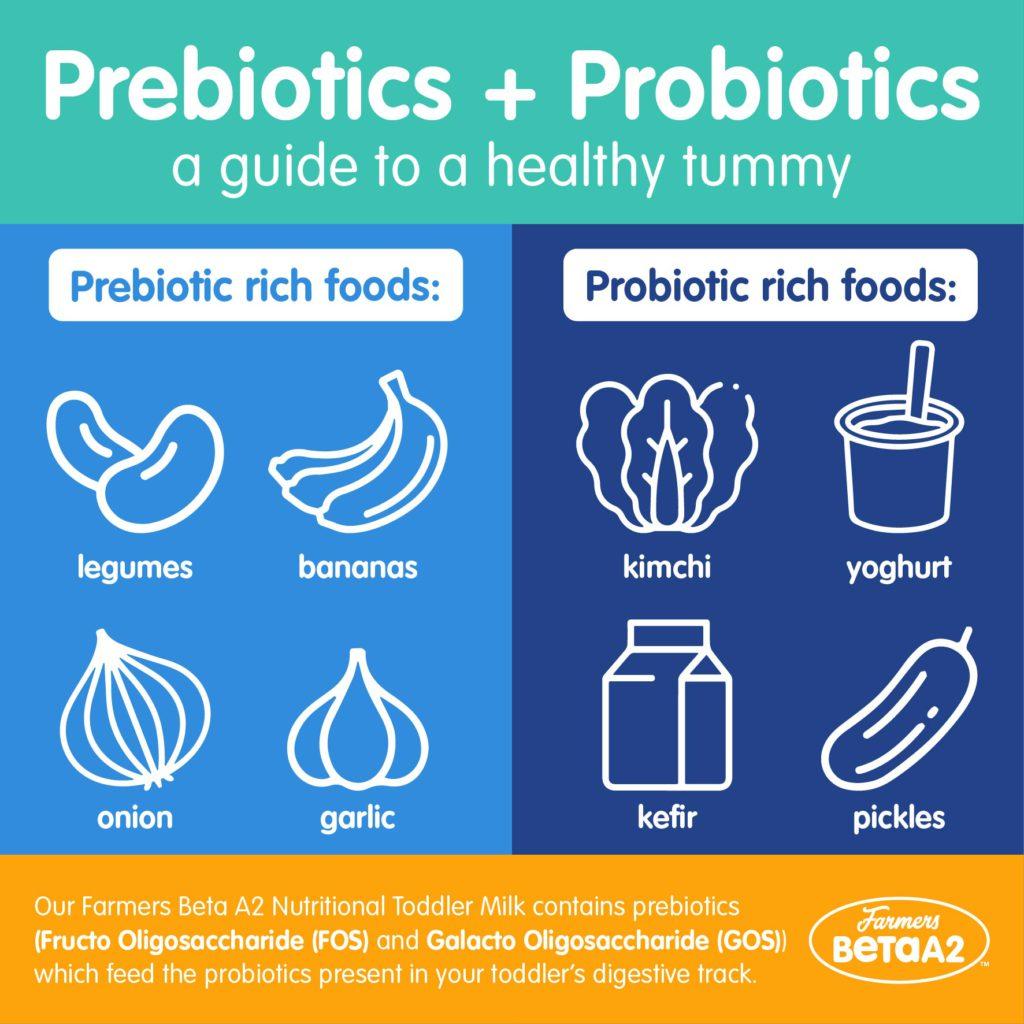In the ever-evolving landscape of gut health, two terms have emerged as the leading players: prebiotics and probiotics. These microbial marvels have captured the attention of health enthusiasts and casual consumers alike, promising everything from improved digestion to boosted immunity. But as we dive into the intricate world of our microbiome, the question arises: Are prebiotics or probiotics the true champions of gut health? In this article, we’ll navigate the nuances of these gut-supporting powerhouses, exploring their distinct roles, benefits, and how they can work together to transform our digestive well-being. Join us on a journey that transcends the surface, demystifying the science behind what lies beneath as we seek to understand what’s best for our gut.
Understanding the Distinct Roles of Prebiotics and Probiotics in gut Health
When considering gut health, it’s essential to differentiate between prebiotics and probiotics, as each plays a crucial yet distinct role.Prebiotics are non-digestible fibers that serve as food for beneficial gut bacteria, stimulating their growth and activity.These fibers can be found in everyday foods such as:
- Garlic
- Onions
- Bananas
- Asparagus
- Chicory root
Conversely, probiotics are live microorganisms, primarily beneficial bacteria, that can confer health benefits when consumed in adequate amounts. These can be directly introduced to the gut through fermented foods or supplements. Common sources include:
- Yogurt
- Kefir
- Sauerkraut
- Kimchi
- miso
Understanding how these components work together is pivotal for fostering a balanced gut microbiome. While prebiotics lay the groundwork by nurturing the gut habitat, probiotics actively replenish the existing beneficial bacteria, creating a symbiotic relationship that enhances overall gut health.

The Science Behind Gut Microbiota: How Prebiotics and Probiotics Work Together
The intricate relationship between gut microbiota and our overall health is a interesting area of study.Gut microbiota comprises trillions of microorganisms, including bacteria, fungi, and viruses, playing a crucial role in our metabolic processes, immune function, and even mental health.Prebiotics are non-digestible fibers that serve as food for these beneficial microorganisms, while probiotics are live beneficial bacteria that can be consumed through fermented foods or supplements. Together, they create a symbiotic environment within the gut, where prebiotics nourish probiotics, and probiotics, in turn, help ferment prebiotics to enhance their health benefits. By fostering a balanced microbiome, they can definitely help improve digestion, enhance nutrient absorption, and modulate immune responses.
Understanding how these components work together is essential for optimizing gut health.Here’s how prebiotics and probiotics contribute:
| Aspect | Prebiotics | Probiotics |
|---|---|---|
| Source | Food sources like bananas, garlic, and onions | Fermented foods like yogurt, kefir, and kombucha |
| Function | Feed and stimulate the growth of beneficial bacteria | Introduce beneficial bacteria to the gut |
| Health Benefits | Improve digestion and boost metabolism | Enhance gut flora balance and inhibit harmful bacteria |
By incorporating both prebiotics and probiotics into our diets, we can harness their complementary benefits to cultivate a flourishing gut microbiome. This, in turn, can lead to improved overall health, from better digestion to enhanced immune responses. The convergence of these two elements highlights the importance of a diverse diet rich in naturally occurring fibers and live cultures, which together create a robust line of defense for maintaining a healthy gut environment.

Choosing the Right Supplement: A Guide to Prebiotic and Probiotic Sources
When delving into the world of gut health, understanding the sources of prebiotics and probiotics is crucial for making informed choices. Prebiotics are essentially the fuel for beneficial bacteria already inhabiting your gut, and they can be found in foods such as:
- Bananas
- Garlic
- Onions
- Chicory root
- Asparagus
In contrast, probiotics are live microorganisms that add to the population of good bacteria in your digestive system. You can incorporate probiotics into your diet through sources like:
- Yogurt
- kefir
- Kimchi
- Sauerkraut
- Miso
| Type | Source | Main Benefit |
|---|---|---|
| Prebiotic | Chicory root | Boosts gut bacteria growth |
| Probiotic | Yogurt | Enhances digestion |
| Prebiotic | Onions | Supports immune function |
| Probiotic | Kimchi | Promotes a healthy gut microbiome |
Choosing between prebiotics and probiotics doesn’t have to be an either-or decision; incorporating both can synergistically support gut health. While prebiotics set the stage for kind bacteria to thrive, probiotics introduce new beneficial strains to your gut. It’s significant to seek out high-quality supplements if you choose the supplemental route, ensuring they contain effective strains and serve your specific health needs. Always consider consulting a healthcare professional to tailor your approach based on your body’s unique requirements.

Practical Tips for Incorporating Prebiotics and Probiotics into Your Diet
Incorporating prebiotics and probiotics into your daily meals can enhance your gut health without much hassle. Start by including a variety of fiber-rich foods that serve as prebiotics, such as:
- Bananas: A quick snack that provides natural sweetness and fiber.
- Garlic: A versatile ingredient that adds flavor to numerous dishes.
- Onions: Perfect for salads,stir-fries,or as a base for sauces.
- Oats: Ideal as a breakfast option or added to smoothies.
For a dose of probiotics, consider adding fermented foods to your meals. These foods are rich in beneficial bacteria and are easy to incorporate into your diet. Options include:
- Yogurt: Choose live or active cultures for maximum benefit.
- Kefir: A probiotic drink that can be consumed alone or with fruit.
- Sauerkraut: Adds a tangy flavor to sandwiches and salads.
- Kombucha: A fizzy beverage loaded with antioxidants.
Below is a simple table summarizing the benefits of prebiotics and probiotics:
| Type | Benefits |
|---|---|
| Prebiotics | Feed beneficial gut bacteria; support digestion. |
| Probiotics | Balance gut microbiota; enhance immune function. |
Final Thoughts
In the intricate world of gut health, both prebiotics and probiotics play pivotal roles, each contributing uniquely to our overall well-being. As we’ve explored, prebiotics act as the nourishing fuel for our beneficial gut bacteria, while probiotics are the live warriors that enhance and diversify our microbial army. The debate over which is superior may ultimately depend on individual needs, dietary habits, and specific health goals.
As you embark on your journey to a healthier gut, consider integrating a balanced approach that includes both prebiotics and probiotics in your diet. Whether it’s through fiber-rich foods like bananas and oats, or fermented delights like yogurt and kefir, your gut will thank you for the variety. Remember, a thriving gut is not just a matter of choosing sides—it’s about creating a harmonious ecosystem that empowers you from the inside out. So, take the time to listen to your body, consult with health professionals when necessary, and embrace the myriad of ways you can nurture your gut health for a happier, healthier life.




